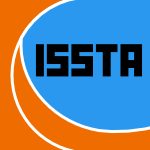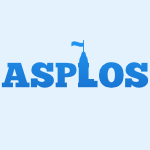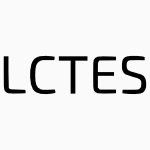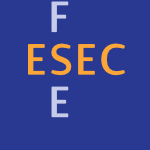83 papers:
 DRR-2015-SoheiliKS #clustering #image #recognition
DRR-2015-SoheiliKS #clustering #image #recognition- Clustering of Farsi sub-word images for whole-book recognition (MRS, EK, DS).
 VLDB-2015-Wu0HZL #crowdsourcing #towards
VLDB-2015-Wu0HZL #crowdsourcing #towards- Hear the Whole Story: Towards the Diversity of Opinion in Crowdsourcing Markets (TW, LC, PH, CJZ, WL), pp. 485–496.
 CHI-2015-Ruiz0 #bias #constraints #elicitation #gesture #legacy #performance
CHI-2015-Ruiz0 #bias #constraints #elicitation #gesture #legacy #performance- Soft-Constraints to Reduce Legacy and Performance Bias to Elicit Whole-body Gestures with Low Arm Fatigue (JR, DV), pp. 3347–3350.
 ECIR-2015-HienertHWK #analysis #named
ECIR-2015-HienertHWK #analysis #named- WHOSE — A Tool for Whole-Session Analysis in IIR (DH, WvH, AW, DK), pp. 172–183.
 CASE-2014-NodaMNKOI #behaviour #maintenance #online #predict
CASE-2014-NodaMNKOI #behaviour #maintenance #online #predict- Online maintaining behavior of high-load and unstable postures based on whole-body load balancing strategy with thermal prediction (SN, MM, SN, YK, KO, MI), pp. 1166–1171.
 CHI-2014-DorkCD #monad
CHI-2014-DorkCD #monad- Monadic exploration: seeing the whole through its parts (MD, RC, MDR), pp. 1535–1544.
 ICPR-2014-ForsbergM #image #segmentation
ICPR-2014-ForsbergM #image #segmentation- Evaluating Cell Nuclei Segmentation for Use on Whole-Slide Images in Lung Cytology (DF, NM), pp. 3380–3385.
 ICPR-2014-MercanASWBE #image #locality
ICPR-2014-MercanASWBE #image #locality- Localization of Diagnostically Relevant Regions of Interest in Whole Slide Images (EM, SA, LGS, DLW, TTB, JGE), pp. 1179–1184.
 HPCA-2014-BalasubramanianS #comprehension #execution #physics #reliability
HPCA-2014-BalasubramanianS #comprehension #execution #physics #reliability- Understanding the impact of gate-level physical reliability effects on whole program execution (RB, KS), pp. 60–71.
 ISSTA-2014-HendersonPYHWZY #analysis #framework #performance
ISSTA-2014-HendersonPYHWZY #analysis #framework #performance- Make it work, make it right, make it fast: building a platform-neutral whole-system dynamic binary analysis platform (AH, AP, LKY, XH, XW, RZ, HY), pp. 248–258.
 ICDAR-2013-GoelMAJ #word
ICDAR-2013-GoelMAJ #word- Whole is Greater than Sum of Parts: Recognizing Scene Text Words (VG, AM, KA, CVJ), pp. 398–402.
 ICDAR-2013-KrayemSEO #recognition #using #word
ICDAR-2013-KrayemSEO #recognition #using #word- Holistic Arabic Whole Word Recognition Using HMM and Block-Based DCT (AK, NS, LJE, TO), pp. 1120–1124.
 VLDB-2013-WangWPWH #adaptation #segmentation
VLDB-2013-WangWPWH #adaptation #segmentation- A Data-adaptive and Dynamic Segmentation Index for Whole Matching on Time Series (YW, PW, JP, WW, SH), pp. 793–804.
 PLDI-2013-SankaranarayananCG #probability #source code #static analysis
PLDI-2013-SankaranarayananCG #probability #source code #static analysis- Static analysis for probabilistic programs: inferring whole program properties from finitely many paths (SS, AC, SG), pp. 447–458.
 IFL-2013-LammelSV #haskell
IFL-2013-LammelSV #haskell- The 101haskell Chrestomathy: A Whole Bunch of Learnable λs (RL, TS, AV), p. 25.
 DUXU-NTE-2013-FabriWT #behaviour #product line
DUXU-NTE-2013-FabriWT #behaviour #product line- Changing Eating Behaviors through a Cooking-Based Website for the Whole Family (MF, AW, PT), pp. 484–493.
 KDIR-KMIS-2013-SaxenaBW #composition #learning
KDIR-KMIS-2013-SaxenaBW #composition #learning- A Cognitive Reference based Model for Learning Compositional Hierarchies with Whole-composite Tags (ABS, AB, AW), pp. 119–127.
 SIGIR-2013-RamanBC #towards #web
SIGIR-2013-RamanBC #towards #web- Toward whole-session relevance: exploring intrinsic diversity in web search (KR, PNB, KCT), pp. 463–472.
 ECOOP-2013-AliL #named #program analysis
ECOOP-2013-AliL #named #program analysis- Averroes: Whole-Program Analysis without the Whole Program (KA, OL), pp. 378–400.
 CHI-2012-CohnMPT #interactive #named #realtime #using
CHI-2012-CohnMPT #interactive #named #realtime #using- Humantenna: using the body as an antenna for real-time whole-body interaction (GC, DM, SP, DST), pp. 1901–1910.
 CHI-2012-HuhPP #community #online
CHI-2012-HuhPP #community #online- Tackling dilemmas in supporting “the whole person” in online patient communities (JH, RAP, WP), pp. 923–926.
 ICPR-2012-CheplyginaTL #question
ICPR-2012-CheplyginaTL #question- Does one rotten apple spoil the whole barrel? (VC, DMJT, ML), pp. 1156–1159.
 ASPLOS-2012-NarayananH #persistent
ASPLOS-2012-NarayananH #persistent- Whole-system persistence (DN, OH), pp. 401–410.
 HPCA-2012-MaJW12a #adaptation #algorithm #design #performance
HPCA-2012-MaJW12a #adaptation #algorithm #design #performance- Whole packet forwarding: Efficient design of fully adaptive routing algorithms for networks-on-chip (SM, NDEJ, ZW), pp. 467–478.
 DRR-2011-XiuB #adaptation #multi #recognition
DRR-2011-XiuB #adaptation #multi #recognition- Multiple-agent adaptation in whole-book recognition (PX, HSB), pp. 1–10.
 CHI-2011-HalpernTEDESBG #interactive #named
CHI-2011-HalpernTEDESBG #interactive #named- MoBoogie: creative expression through whole body musical interaction (MKH, JT, ME, SD, AE, KS, EPSB, GG), pp. 557–560.
 CAiSE-2011-Guizzardi #concept #ontology
CAiSE-2011-Guizzardi #concept #ontology- Ontological Foundations for Conceptual Part-Whole Relations: The Case of Collectives and Their Parts (GG), pp. 138–153.
 ICEIS-v2-2011-JiangX #adaptation #flexibility
ICEIS-v2-2011-JiangX #adaptation #flexibility- Only Flexibility can Adapt to the Outside World, and Only Solidification can Unify the Whole System (JJ, YX), pp. 302–306.
 KDIR-2011-MauleKR #approach #automation #using
KDIR-2011-MauleKR #approach #automation #using- Automated Approach for Whole Brain Infarction Core Delineation — Using Non-contrast and Computed Tomography Angiography (PM, JK, VR), pp. 433–437.
 CGO-2011-KarrenbergH
CGO-2011-KarrenbergH- Whole-function vectorization (RK, SH), pp. 141–150.
 DRR-2010-XiuB #recognition
DRR-2010-XiuB #recognition- Incorporating linguistic post-processing into whole-book recognition (PX, HSB), pp. 1–10.
 VLDB-2010-ManethN #optimisation #query #xpath
VLDB-2010-ManethN #optimisation #query #xpath- XPath Whole Query Optimization (SM, KN), pp. 882–893.
 CHI-2010-CaoVI #hybrid #performance
CHI-2010-CaoVI #hybrid #performance- Comparing user performance with single-finger, whole-hand, and hybrid pointing devices (XC, NV, SI), pp. 1643–1646.
 CHI-2010-PatelGR #design #evaluation #power management
CHI-2010-PatelGR #design #evaluation #power management- The design and evaluation of an end-user-deployable, whole house, contactless power consumption sensor (SNP, SG, MSR), pp. 2471–2480.
 CSCW-2010-CaoLHS #deployment
CSCW-2010-CaoLHS #deployment- Telling the whole story: anticipation, inspiration and reputation in a field deployment of TellTable (XC, SEL, JH, AS), pp. 251–260.
 ICPR-2010-RicamatoT #effectiveness #question
ICPR-2010-RicamatoT #effectiveness #question- AUC-based Combination of Dichotomizers: Is Whole Maximization also Effective for Partial Maximization? (MTR, FT), pp. 73–76.
 ICPR-2010-XiuB #adaptation #recognition
ICPR-2010-XiuB #adaptation #recognition- Incorporating Linguistic Model Adaptation into Whole-Book Recognition (PX, HSB), pp. 2057–2060.
 SEKE-2010-KhounSiavashB #metric #ontology #semantics #using
SEKE-2010-KhounSiavashB #metric #ontology #semantics #using- Using the whole structure of ontology for semantic relatedness measurement (EK, ABD), pp. 79–83.
 SIGIR-2010-BaileyCWCST
SIGIR-2010-BaileyCWCST- Evaluating whole-page relevance (PB, NC, RWW, LC, AS, SMMT), pp. 767–768.
 SAC-2010-MacielNJIS #interactive #using
SAC-2010-MacielNJIS #interactive #using- Reality cues-based interaction using whole-body awareness (AM, LPN, VAMJ, JMTI, LFMSS), pp. 1224–1228.
 SAC-2010-MaoH #robust #web
SAC-2010-MaoH #robust #web- A robust link-translating proxy server mirroring the whole web (ZM, CH), pp. 818–825.
 ICDAR-2009-XiuB #recognition #scalability
ICDAR-2009-XiuB #recognition #scalability- Scaling Up Whole-Book Recognition (PX, HSB), pp. 698–702.
 LATA-2009-AbdullaDB #comparison #petri net
LATA-2009-AbdullaDB #comparison #petri net- A Language-Based Comparison of Extensions of Petri Nets with and without Whole-Place Operations (PAA, GD, LVB), pp. 71–82.
 HCI-NIMT-2009-WechsungESSMM #evaluation #interface #multimodal #question #usability
HCI-NIMT-2009-WechsungESSMM #evaluation #interface #multimodal #question #usability- Usability Evaluation of Multimodal Interfaces: Is the Whole the Sum of Its Parts? (IW, KPE, SS, JS, FM, SM), pp. 113–119.
 OCSC-2009-Davis #comprehension
OCSC-2009-Davis #comprehension- The Whole Story: Retrieving Narratives for Cross-Cultural Understanding (AD), pp. 442–451.
 CAiSE-2009-Guizzardi #concept #modelling #problem #revisited #transitive
CAiSE-2009-Guizzardi #concept #modelling #problem #revisited #transitive- The Problem of Transitivity of Part-Whole Relations in Conceptual Modeling Revisited (GG), pp. 94–109.
 TOOLS-EUROPE-2009-BruniV #generative #named #prototype #using #virtual machine
TOOLS-EUROPE-2009-BruniV #generative #named #prototype #using #virtual machine- PyGirl: Generating Whole-System VMs from High-Level Prototypes Using PyPy (CB, TV), pp. 328–347.
 DRR-2008-XiuB #adaptation #recognition #using
DRR-2008-XiuB #adaptation #recognition #using- Whole-book recognition using mutual-entropy-driven model adaptation (PX, HSB), p. 681506.
 KR-2008-ArtaleGK #constraints #formal method
KR-2008-ArtaleGK #constraints #formal method- Formalising Temporal Constraints on Part-Whole Relations (AA, NG, CMK), pp. 673–683.
 CASE-2007-JiangLCHHS #automation #development #framework
CASE-2007-JiangLCHHS #automation #development #framework- Development of Whole Human Genome Micro-array Automated Hybridization Platform (JYJ, KHL, CCC, JLH, CHH, HJS), pp. 640–645.
 LATA-2007-BodiniFR
LATA-2007-BodiniFR- A Characterization of Flip-accessibility for Rhombus Tilings of the Whole Plane (OB, TF, ER), pp. 139–150.
 HCI-IPT-2007-RaynalT
HCI-IPT-2007-RaynalT- Fisheye Keyboard: Whole Keyboard Displayed on PDA (MR, PT), pp. 452–459.
 CAiSE-2007-Guizzardi #aspect-oriented
CAiSE-2007-Guizzardi #aspect-oriented- Modal Aspects of Object Types and Part-Whole Relations and the de re/de dicto Distinction (GG), pp. 5–20.
 SAC-2007-JinC #graph
SAC-2007-JinC #graph- Hierarchical alignment graph for gene teams finding on whole genomes (HJJ, HGC), pp. 113–117.
 CSEET-2006-HayesDHSD #question
CSEET-2006-HayesDHSD #question- Will Johnny/Joanie Make a Good Software Engineer? Are Course Grades Showing the Whole Picture? (JHH, AD, EAH, SKS, OD), pp. 175–184.
 ITiCSE-2006-GriswoldS #learning #performance #scalability #ubiquitous
ITiCSE-2006-GriswoldS #learning #performance #scalability #ubiquitous- Ubiquitous presenter: fast, scalable active learning for the whole classroom (WGG, BS), p. 358.
 PLDI-2006-TriantafyllisBROA #framework #optimisation #strict
PLDI-2006-TriantafyllisBROA #framework #optimisation #strict- A framework for unrestricted whole-program optimization (ST, MJB, ER, GO, DIA), pp. 61–71.
 CIKM-2006-BartoliniCP #named
CIKM-2006-BartoliniCP #named- SaLSa: computing the skyline without scanning the whole sky (IB, PC, MP), pp. 405–414.
 ICPR-v4-2006-UranishiNYIMC #metric #using
ICPR-v4-2006-UranishiNYIMC #metric #using- Whole Shape Measurement System Using a Single Camera and a Cylindrical Mirror (YU, MN, YY, MI, YM, KC), pp. 866–869.
 ICPR-v4-2006-YangPL #gesture #interactive #recognition
ICPR-v4-2006-YangPL #gesture #interactive #recognition- Human-Robot Interaction by Whole Body Gesture Spotting and Recognition (HDY, AYP, SWL), pp. 774–777.
 ASPLOS-2006-MishraCCVGB #execution #named
ASPLOS-2006-MishraCCVGB #execution #named- Tartan: evaluating spatial computation for whole program execution (MM, TJC, TC, GV, SCG, MB), pp. 163–174.
 ICDAR-2005-Sherkat #recognition #word
ICDAR-2005-Sherkat #recognition #word- Influence of Zoning on Whole Word Recognition (NS), pp. 1085–1089.
 SAC-2005-LeeST #database #performance
SAC-2005-LeeST #database #performance- Efficient discovery of unique signatures on whole-genome EST databases (HPL, TFS, YTT), pp. 100–104.
 PLDI-2004-ZhongOSD #array #using
PLDI-2004-ZhongOSD #array #using- Array regrouping and structure splitting using whole-program reference affinity (YZ, MO, XS, CD), pp. 255–266.
 SEFM-2004-Mei #architecture #lifecycle #named
SEFM-2004-Mei #architecture #lifecycle #named- ABC: Supporting Software Architectures in the Whole Lifecycle (HM), pp. 342–343.
 PLDI-2003-DingZ #analysis #distance #locality #predict #reuse
PLDI-2003-DingZ #analysis #distance #locality #predict #reuse- Predicting whole-program locality through reuse distance analysis (CD, YZ), pp. 245–257.
 ICSE-2003-LawR #impact analysis
ICSE-2003-LawR #impact analysis- Whole Program Path-Based Dynamic Impact Analysis (JL, GR), pp. 308–318.
 LCTES-2003-ZhangPV #clustering
LCTES-2003-ZhangPV #clustering- Tamper-resistant whole program partitioning (TZ, SP, AVG), pp. 209–219.
 ICPR-v1-2002-MarinoPPBnCG #sequence
ICPR-v1-2002-MarinoPPBnCG #sequence- Methodology for the Registration of Whole SLO Sequences (CM, MP, MGP, JMB, VL, MJC, FGU), pp. 779–783.
 KR-2002-Schulz
KR-2002-Schulz- Necessary Parts and Wholes in Bio-Ontologies (SS), pp. 387–394.
 HPCA-2002-VeraX #behaviour
HPCA-2002-VeraX #behaviour- Let’s Study Whole-Program Cache Behaviour Analytically (XV, JX), pp. 175–186.
 PLDI-2001-ZhangG #representation
PLDI-2001-ZhangG #representation- Timestamped Whole Program Path Representation and its Applications (YZ, RG), pp. 180–190.
 POPL-2001-Kandemir #compilation #locality
POPL-2001-Kandemir #compilation #locality- A compiler technique for improving whole-program locality (MTK), pp. 179–192.
 UML-2000-Pazzi #behaviour #representation
UML-2000-Pazzi #behaviour #representation- Part-Whole Statecharts for the Explicit Representation of Compound Behaviors (LP), pp. 541–555.
 ICDAR-1999-SherkatA #image #recognition #word
ICDAR-1999-SherkatA #image #recognition #word- Whole Word Recognition in Facsimile Images (NS, TJA), pp. 547–550.
 PLDI-1999-Larus
PLDI-1999-Larus- Whole Program Paths (JRL), pp. 259–269.
 TOOLS-PACIFIC-1999-BarbierH #metamodelling
TOOLS-PACIFIC-1999-BarbierH #metamodelling- Object Metamodeling of The Whole-Part Relationship (FB, BHS), pp. 127–138.
 ESEC-FSE-1999-LiangH #performance #points-to #program analysis
ESEC-FSE-1999-LiangH #performance #points-to #program analysis- Efficient Points-to Analysis for Whole-Program Analysis (DL, MJH), pp. 199–215.
 FM-1998-Woodcock #higher-order
FM-1998-Woodcock #higher-order- The wHOLe System (MEW), pp. 359–366.
 FSE-1998-AtkinsonG #effectiveness #pointer #program analysis
FSE-1998-AtkinsonG #effectiveness #pointer #program analysis- Effective Whole-Program Analysis in the Presence of Pointers (DCA, WGG), pp. 46–55.
 ICSE-1996-AtkinsonG #design #program analysis #tool support
ICSE-1996-AtkinsonG #design #program analysis #tool support- The Design of Whole-Program Analysis Tools (DCA, WGG), pp. 16–27.
 ASPLOS-1996-GrunwaldN #optimisation #performance #thread
ASPLOS-1996-GrunwaldN #optimisation #performance #thread- Whole-Program Optimization for Time and Space Efficient Threads (DG, RN), pp. 50–59.
 ECOOP-1991-WolinskiP #multi #representation
ECOOP-1991-WolinskiP #multi #representation- Representation of Complex Objects: Multiple Facets with Part-Whole Hierarchies (FW, JFP), pp. 288–306.
 DRR-2015-SoheiliKS #clustering #image #recognition
DRR-2015-SoheiliKS #clustering #image #recognition VLDB-2015-Wu0HZL #crowdsourcing #towards
VLDB-2015-Wu0HZL #crowdsourcing #towards CHI-2015-Ruiz0 #bias #constraints #elicitation #gesture #legacy #performance
CHI-2015-Ruiz0 #bias #constraints #elicitation #gesture #legacy #performance ECIR-2015-HienertHWK #analysis #named
ECIR-2015-HienertHWK #analysis #named CASE-2014-NodaMNKOI #behaviour #maintenance #online #predict
CASE-2014-NodaMNKOI #behaviour #maintenance #online #predict CHI-2014-DorkCD #monad
CHI-2014-DorkCD #monad ICPR-2014-ForsbergM #image #segmentation
ICPR-2014-ForsbergM #image #segmentation ICPR-2014-MercanASWBE #image #locality
ICPR-2014-MercanASWBE #image #locality HPCA-2014-BalasubramanianS #comprehension #execution #physics #reliability
HPCA-2014-BalasubramanianS #comprehension #execution #physics #reliability ISSTA-2014-HendersonPYHWZY #analysis #framework #performance
ISSTA-2014-HendersonPYHWZY #analysis #framework #performance ICDAR-2013-GoelMAJ #word
ICDAR-2013-GoelMAJ #word ICDAR-2013-KrayemSEO #recognition #using #word
ICDAR-2013-KrayemSEO #recognition #using #word VLDB-2013-WangWPWH #adaptation #segmentation
VLDB-2013-WangWPWH #adaptation #segmentation PLDI-2013-SankaranarayananCG #probability #source code #static analysis
PLDI-2013-SankaranarayananCG #probability #source code #static analysis IFL-2013-LammelSV #haskell
IFL-2013-LammelSV #haskell DUXU-NTE-2013-FabriWT #behaviour #product line
DUXU-NTE-2013-FabriWT #behaviour #product line KDIR-KMIS-2013-SaxenaBW #composition #learning
KDIR-KMIS-2013-SaxenaBW #composition #learning SIGIR-2013-RamanBC #towards #web
SIGIR-2013-RamanBC #towards #web ECOOP-2013-AliL #named #program analysis
ECOOP-2013-AliL #named #program analysis CHI-2012-CohnMPT #interactive #named #realtime #using
CHI-2012-CohnMPT #interactive #named #realtime #using CHI-2012-HuhPP #community #online
CHI-2012-HuhPP #community #online ICPR-2012-CheplyginaTL #question
ICPR-2012-CheplyginaTL #question ASPLOS-2012-NarayananH #persistent
ASPLOS-2012-NarayananH #persistent HPCA-2012-MaJW12a #adaptation #algorithm #design #performance
HPCA-2012-MaJW12a #adaptation #algorithm #design #performance DRR-2011-XiuB #adaptation #multi #recognition
DRR-2011-XiuB #adaptation #multi #recognition CHI-2011-HalpernTEDESBG #interactive #named
CHI-2011-HalpernTEDESBG #interactive #named CAiSE-2011-Guizzardi #concept #ontology
CAiSE-2011-Guizzardi #concept #ontology ICEIS-v2-2011-JiangX #adaptation #flexibility
ICEIS-v2-2011-JiangX #adaptation #flexibility KDIR-2011-MauleKR #approach #automation #using
KDIR-2011-MauleKR #approach #automation #using CGO-2011-KarrenbergH
CGO-2011-KarrenbergH DRR-2010-XiuB #recognition
DRR-2010-XiuB #recognition VLDB-2010-ManethN #optimisation #query #xpath
VLDB-2010-ManethN #optimisation #query #xpath CHI-2010-CaoVI #hybrid #performance
CHI-2010-CaoVI #hybrid #performance CHI-2010-PatelGR #design #evaluation #power management
CHI-2010-PatelGR #design #evaluation #power management CSCW-2010-CaoLHS #deployment
CSCW-2010-CaoLHS #deployment ICPR-2010-RicamatoT #effectiveness #question
ICPR-2010-RicamatoT #effectiveness #question ICPR-2010-XiuB #adaptation #recognition
ICPR-2010-XiuB #adaptation #recognition SEKE-2010-KhounSiavashB #metric #ontology #semantics #using
SEKE-2010-KhounSiavashB #metric #ontology #semantics #using SIGIR-2010-BaileyCWCST
SIGIR-2010-BaileyCWCST SAC-2010-MacielNJIS #interactive #using
SAC-2010-MacielNJIS #interactive #using SAC-2010-MaoH #robust #web
SAC-2010-MaoH #robust #web ICDAR-2009-XiuB #recognition #scalability
ICDAR-2009-XiuB #recognition #scalability LATA-2009-AbdullaDB #comparison #petri net
LATA-2009-AbdullaDB #comparison #petri net HCI-NIMT-2009-WechsungESSMM #evaluation #interface #multimodal #question #usability
HCI-NIMT-2009-WechsungESSMM #evaluation #interface #multimodal #question #usability OCSC-2009-Davis #comprehension
OCSC-2009-Davis #comprehension CAiSE-2009-Guizzardi #concept #modelling #problem #revisited #transitive
CAiSE-2009-Guizzardi #concept #modelling #problem #revisited #transitive TOOLS-EUROPE-2009-BruniV #generative #named #prototype #using #virtual machine
TOOLS-EUROPE-2009-BruniV #generative #named #prototype #using #virtual machine DRR-2008-XiuB #adaptation #recognition #using
DRR-2008-XiuB #adaptation #recognition #using KR-2008-ArtaleGK #constraints #formal method
KR-2008-ArtaleGK #constraints #formal method CASE-2007-JiangLCHHS #automation #development #framework
CASE-2007-JiangLCHHS #automation #development #framework LATA-2007-BodiniFR
LATA-2007-BodiniFR HCI-IPT-2007-RaynalT
HCI-IPT-2007-RaynalT CAiSE-2007-Guizzardi #aspect-oriented
CAiSE-2007-Guizzardi #aspect-oriented SAC-2007-JinC #graph
SAC-2007-JinC #graph CSEET-2006-HayesDHSD #question
CSEET-2006-HayesDHSD #question ITiCSE-2006-GriswoldS #learning #performance #scalability #ubiquitous
ITiCSE-2006-GriswoldS #learning #performance #scalability #ubiquitous PLDI-2006-TriantafyllisBROA #framework #optimisation #strict
PLDI-2006-TriantafyllisBROA #framework #optimisation #strict CIKM-2006-BartoliniCP #named
CIKM-2006-BartoliniCP #named ICPR-v4-2006-UranishiNYIMC #metric #using
ICPR-v4-2006-UranishiNYIMC #metric #using ICPR-v4-2006-YangPL #gesture #interactive #recognition
ICPR-v4-2006-YangPL #gesture #interactive #recognition ASPLOS-2006-MishraCCVGB #execution #named
ASPLOS-2006-MishraCCVGB #execution #named ICDAR-2005-Sherkat #recognition #word
ICDAR-2005-Sherkat #recognition #word SAC-2005-LeeST #database #performance
SAC-2005-LeeST #database #performance PLDI-2004-ZhongOSD #array #using
PLDI-2004-ZhongOSD #array #using SEFM-2004-Mei #architecture #lifecycle #named
SEFM-2004-Mei #architecture #lifecycle #named PLDI-2003-DingZ #analysis #distance #locality #predict #reuse
PLDI-2003-DingZ #analysis #distance #locality #predict #reuse ICSE-2003-LawR #impact analysis
ICSE-2003-LawR #impact analysis LCTES-2003-ZhangPV #clustering
LCTES-2003-ZhangPV #clustering ICPR-v1-2002-MarinoPPBnCG #sequence
ICPR-v1-2002-MarinoPPBnCG #sequence KR-2002-Schulz
KR-2002-Schulz HPCA-2002-VeraX #behaviour
HPCA-2002-VeraX #behaviour PLDI-2001-ZhangG #representation
PLDI-2001-ZhangG #representation POPL-2001-Kandemir #compilation #locality
POPL-2001-Kandemir #compilation #locality UML-2000-Pazzi #behaviour #representation
UML-2000-Pazzi #behaviour #representation ICDAR-1999-SherkatA #image #recognition #word
ICDAR-1999-SherkatA #image #recognition #word PLDI-1999-Larus
PLDI-1999-Larus TOOLS-PACIFIC-1999-BarbierH #metamodelling
TOOLS-PACIFIC-1999-BarbierH #metamodelling ESEC-FSE-1999-LiangH #performance #points-to #program analysis
ESEC-FSE-1999-LiangH #performance #points-to #program analysis FM-1998-Woodcock #higher-order
FM-1998-Woodcock #higher-order FSE-1998-AtkinsonG #effectiveness #pointer #program analysis
FSE-1998-AtkinsonG #effectiveness #pointer #program analysis ICSE-1996-AtkinsonG #design #program analysis #tool support
ICSE-1996-AtkinsonG #design #program analysis #tool support ASPLOS-1996-GrunwaldN #optimisation #performance #thread
ASPLOS-1996-GrunwaldN #optimisation #performance #thread ECOOP-1991-WolinskiP #multi #representation
ECOOP-1991-WolinskiP #multi #representation









